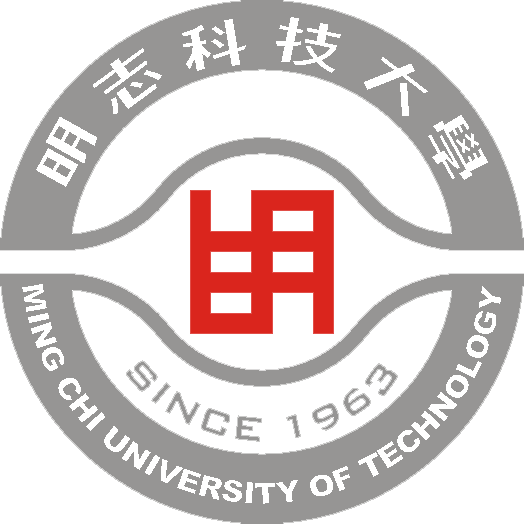Organic Electronics Research Center
Research Field
Dr. Zong-Liang Tseng is currently an associate professor of the Department of Electronic Engineering, Ming Chi University of Technology (MCUT), as well as the head of material division of the organic electronics research center in MCUT. His current research interests focuses on Quantum Dots and Nanoparticles materials, and their relevance in new optoelectronic devices, such as, QLEDs, transparent QLEDs, QD-based PD and QD-based up-conversion devices. Until now, Dr. Z.-L. Tseng has published over 70 international journal papers. In 2022, his article was also selected as the journal cover page of Adv. Mater.
The establishment of the Organic Electronics Center in January 2015, with the support of the chairman and under the leadership of Professor Liu Shun-Wei from the Department of Electronics, has proven to be a significant step towards enhancing research and development (R&D) and industry-academia collaboration capabilities. Over the years, the center has received 80 million NTD in R&D funds, and this achievement can be attributed to the significant role played by the chairman. Since its inception, the Organic Electronics Center has not only excelled in academic research and publication records but has also made notable strides in practical research and development, gaining recognition from both academia and industry. In 2018, Director Liu Shun-Wei's exceptional contributions were acknowledged when he received the Outstanding Technology Transfer Contribution Award from the Ministry of Science and Technology. Moreover, Professor Liu's receipt of the Wu Ta-You Memorial Award in the same year is a remarkable accomplishment. Director Liu's achievement as a professor from a private university highlights his exceptional capabilities and marks a rare occurrence within the past decade. It underscores his dedication to both industry-academia collaboration and fundamental research, further enhancing the reputation of the Organic Electronics Center. Furthermore, the research team of the center, consisting of nine members, has made significant contributions to the field. They have published over 45 journal papers and successfully completed 18 projects funded by prestigious organizations such as the Ministry of Science and Technology, private industry, the Ministry of Education, and the Ministry of Economic Affairs. The total funding received for these projects amounts to nearly 18 million NTD, with an additional 2 million NTD generated through technology transfers. Furthermore, the research achievements of the center have garnered international recognition, particularly in the Asian region. This recognition has resulted in frequent invitations for Professor Liu Shun-Wei to speak at academic exchange events in the Asia-Pacific region. Through these engagements, international scholars have gradually become familiar with the research potential of our university's Organic Electronics Research Center and have expressed their willingness to pursue cross-border collaborations.
Since its establishment, the center has actively fostered collaborations and exchanges with several renowned international institutions. These include the University of Hong Kong, North Carolina State University in the United States, Banaras Hindu University, IIT Kharagpur and the Indian Institute of Science in India, Shimane University in Japan, as well as the South China University of Technology, and Soochow University in Mainland China.
The research center currently comprises nine members from diverse colleges and research fields (refer to below Figure 1). These fields encompass materials chemistry, polymer semiconductor materials, electrical power and machinery, electronic circuits, spectroscopic analysis, biomedical sensing, nanotechnology, and organic optoelectronic semiconductor processing. By leveraging the unique expertise held by each professor, the center strives to harness this collaborative platform to deliver solutions for both domestic and international companies. Be it the development of vacuum equipment, validation of organic materials, or the implementation of Raman spectroscopy identification, the center can swiftly establish suitable channels to support industry-academia projects. The successful integration of this multidisciplinary team stands as a rare and remarkable achievement within Taiwan.
Currently, the center focuses on three major research topics for applied development: weak light power generation, wearable device applications, and medical light sources. These research areas are supported by the center's core facilities, where the research teams conduct their investigations. To ensure progress and coordination, regular discussions are held among the team of professors involved. Furthermore, Professor Liu Shun-Wei, as the director of the center, has attained significant academic influence in the field of organic electronics. In 2016, he achieved a significant milestone by being selected as an Editorial Editor for the esteemed international journal "Scientific Reports." This accomplishment marks him as the first researcher with a background in organic optoelectronics from a technological university in Taiwan to hold such a distinguished position within such a high-level journal.
Prof. Z. L. Tseng's research topic research focuses on the solution-processed perovskite devices for optoelectronic device applications. After 2018, he is currently studying how to prepare the novel electronics with perovskite quantum-dots. His interests include:
perovskite solar cells
perovskite LEDs
perovskite QLED
perovskite photodetectors
perovskite light conversion films
In 2022, his article was also selected as the journal cover page of Adv. Mater.
EE Ph.D. degree from National Cheng Kung University, TW.
2 Vacancies
Job Description
Fabricate and process perovskite based optoelectronics.
Preferred Intern Education Level
Ph.D. or M.S. or higher level education.
Skill sets or Qualities
Students who are proactive and willing to work collaboratively are prefered.
